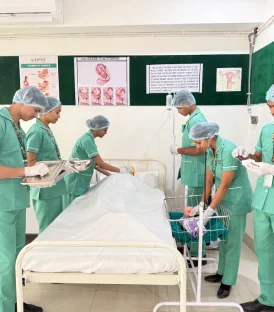December 17, 2023
Hypertension, commonly known as high blood pressure, is a medical condition that silently affects millions worldwide. Often termed the “silent killer,” hypertension seldom exhibits noticeable symptoms but quietly wreaks havoc on the body, increasing the risk of severe health complications. Understanding this condition is pivotal for its management and prevention.
What is Hypertension?
Blood pressure measures the force of blood against the walls of arteries as the heart pumps it around the body. When this pressure remains consistently high over an extended period, it leads to hypertension. Typically, blood pressure readings are represented by two numbers – systolic pressure (the pressure in the arteries when the heart contracts) over diastolic pressure (the pressure when the heart relaxes between beats). Normal blood pressure is considered to be around 120/80 mmHg. Hypertension is diagnosed when these readings consistently exceed 130/80 mmHg.
The Silent Menace
One of the most alarming aspects of hypertension is its silent progression. It often shows no symptoms in its early stages, leaving individuals unaware of their condition until it leads to severe health complications. Over time, uncontrolled hypertension can damage blood vessels, heart, brain, kidneys, and other organs, increasing the risk of heart attacks, strokes, kidney disease, and even vision loss.
Causes and Risk Factors
Various factors contribute to hypertension, including genetics, lifestyle choices, and underlying health conditions. Sedentary lifestyles, high-sodium diets, excessive alcohol consumption, smoking, obesity, stress, and certain chronic conditions like diabetes or kidney disease can significantly elevate the risk of developing hypertension.
Prevention and Management
Prevention and management of hypertension predominantly revolve around lifestyle modifications and, in some cases, medication. Embracing a balanced diet rich in fruits, vegetables, whole grains, and low-fat dairy while reducing sodium intake can effectively lower blood pressure. Regular exercise, maintaining a healthy weight, limiting alcohol consumption, and managing stress also play pivotal roles in preventing and managing hypertension.
Conclusion
Hypertension remains a pervasive health issue, often underestimated due to its asymptomatic nature. Its insidious progression emphasizes the importance of routine health screenings and lifestyle modifications to curb its effects. Understanding the risks, adopting a healthier lifestyle, and seeking timely medical advice are crucial steps in managing hypertension and preventing its complications. By empowering individuals with knowledge and proactive healthcare measures, the silent threat of hypertension can be effectively managed, reducing its impact on global health.

















